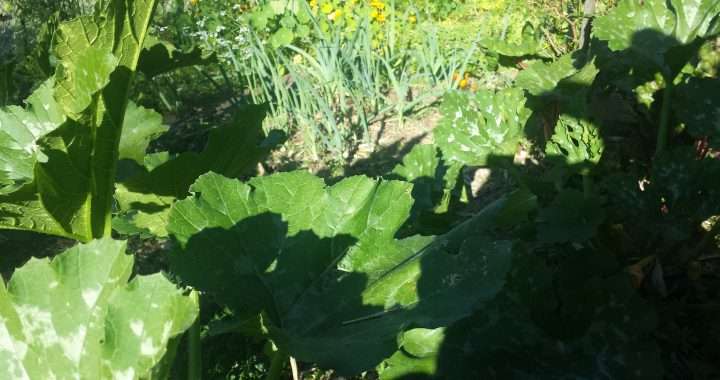
Managing NPK in your organic garden or farm with living processes
Author : My Food Garden
Managing NPK is an obsession of industrialised agriculture which started over 100 years ago. This focus works with complex combinations of different NPK synthetic fertilisers to make plants to grow big and fast.
These fertilisers are provided to the soil as dead substances, so its not surprising that by force feeding plants with NPK chemicals, the use of chemical herbicides and pesticides also increases. This results in toxic soil, toxic water, toxic plants and increasing health issues of anything that eats such plants. Up to 80% of all food eaten in Australia comes from the industrialised food system.
For organic and biodynamic gardeners and farmers, managing NPK is also important but the approach is fundamentally different, much simpler, more effective and most importantly, it works with the living principle, trusting that by enhancing such a principle, NPK levels will be ideal.
It would be easy to get bogged down into chemistry and soil analysis with NPK concepts , but I think it is very important to rise above this so that you can use your own powers of observation to work effectively with managing NPK, no matter what skill level or resources you have at your disposal.
Lets start with some terms:
- N – This represents nitrogen which tends to work mostly on leaf and stem development in the plant. Nitrogen is a major plant food and is best applied in organic form such as manures (solid and liquid), composts and green manure crops such as legumes. The liquid manure should be fermented before applying and treated with nettles, old compost or BD compost preparations. Nitrogen lack is indicated by plants that are tough, spindly and olders leaves turn yellow a bit early. Too much nitrogen is shown by rank and excessive leaf and stem growth with poor root or flower development – a good example is carrot, if you have too much nitrogen you get lots of leaf and very poor roots.
- P – This represents phosphorus and is needed for good flower, seed and fruit development. It can be derived from powdered rock phosphate, chicken and other bird manures, bone meal. Lupine and vetch as green manure crops are good sources of phosphorus. Lack of phosphorus is evident when plants will not mature, have reddish purple discoloration and seed development is defective. In tomatoes, the underside of the leaves turns purple.
- K – This represents potash or potassium and is needed mainly for good root development. Ideal sources of potash are wood ash from hardwoods, seaweed, bracken fern tea, vetch as a green manure crop and alfalfa as mulch or compost. Lack of potash is shown by edges and tips of plants looking dried and plants being stunted. Fruits ripen unevenly.
In general, its good to create a balance of NPK in your food garden by using manures, compost, different green manure crops and different liquids manures. However, you may choose to emphasise one, for example, a crop that needs a lot of leaf growth such as cabbage, needs lots of nitrogen, so make sure you precede cabbages with a legume green manure crop and use compost whilst the plant is growing.
If you are working with biodynamic gardening practices, you can also use biodynamic preparations to strengthen the impact of nitrogen, phosphorous and potassium, for example:
- BD503 (Chamomile) compost preparation – stablises nitrogen
- BD506 (Dandelion) compost preparation – works with potassium
- BD507 (Valerian) compost preparation – concentrates phosphorus
- BD501 (Silica) reduces the impact of too much nitrogen
- BD500 (horn manure) – stimulates soil life helping to balance NPK
To work with these preparations, make your compost with a set of biodynamic compost (BD) preps, apply your liquid manures with BD compost preps and twice yearly apply BD horn manure and BD horn silica. Its important to also start with a mineral balancing of your soil and work with crop rotation and green manure, sound organic management practices, all resulting in managing NPK with the living principle.
Come along to one of our Workshops or talk to us about our Coaching service.
Author – Peter Kearney – www.beta.myfoodgarden.com.au

